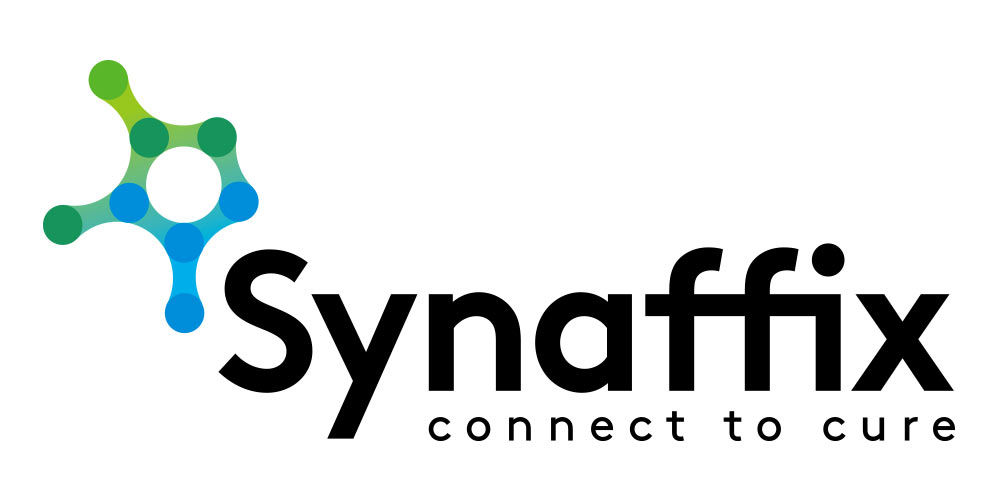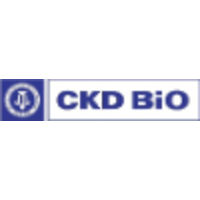预约演示
更新于:2025-08-29

SynAffix BV
更新于:2025-08-29
概览
标签
肿瘤
ADC
疾病领域得分
一眼洞穿机构专注的疾病领域
暂无数据
技术平台
公司药物应用最多的技术
暂无数据
靶点
公司最常开发的靶点
暂无数据
| 疾病领域 | 数量 |
|---|---|
| 肿瘤 | 3 |
| 排名前五的药物类型 | 数量 |
|---|---|
| ADC | 3 |
| 排名前五的靶点 | 数量 |
|---|---|
| c-Met(肝细胞生长因子受体) | 1 |
| DNA x HER2 | 1 |
关联
3
项与 SynAffix BV 相关的药物作用机制 DNA抑制剂 [+1] |
在研机构 |
原研机构 |
在研适应症 |
非在研适应症- |
最高研发阶段临床前 |
首次获批国家/地区- |
首次获批日期- |
靶点 |
作用机制 c-Met抑制剂 |
在研机构 |
原研机构 |
在研适应症 |
非在研适应症- |
最高研发阶段临床前 |
首次获批国家/地区- |
首次获批日期- |
靶点- |
作用机制- |
在研机构 |
原研机构 |
在研适应症 |
非在研适应症- |
最高研发阶段药物发现 |
首次获批国家/地区- |
首次获批日期- |
100 项与 SynAffix BV 相关的临床结果
登录后查看更多信息
0 项与 SynAffix BV 相关的专利(医药)
登录后查看更多信息
264
项与 SynAffix BV 相关的新闻(医药)2025-08-20
·小药说药
-01-
引言
几十年来,抗体偶联药物(ADC)和生物偶联物的进步彻底改变了各种疾病的靶向治疗。与传统的化疗不同,ADC选择性地靶向肿瘤细胞,同时保留正常细胞,使其非常适合癌症治疗。目前,全球市场上已有17种ADC获得不同国家监管机构的批准。临床试验中有超过200多个ADC正在探索,预计未来几年还有更多ADC商业化,使癌症患者受益。
ADC设计中的多种因素影响其成功,包括抗体、接头、有效载荷选择、药物附着位点和药物抗体比(DAR),所有这些因素都起着重要作用。药物附着在抗体上的方法至关重要;药物连接的位置和方式会影响ADC的稳定性、疗效和药代动力学(PK)。
偶联方法传统上分为两类:随机偶联和位点特异性偶联。进一步,可以将这些技术分为三类。第一类是随机偶联(例如随机赖氨酸)。第二类是位点特异性的,但不是位点选择性的,因为这些位点受到所使用的偶联技术的限制。这一类别包括酶、聚糖、亲和肽偶联和“随机”链间半胱氨酸偶联。第三类是位点特异性和位点选择性,修饰氨基酸序列,如工程半胱氨酸或非天然氨基酸,提供各种结合位点。关于CMC,随机偶联和链间半胱氨酸偶联通常更简单。位点特异性和位点选择性偶联技术提供了更好的同质性,但可能会遇到更多的CMC挑战,包括蛋白质表达问题(如非天然氨基酸)、去除杂质所需的额外纯化步骤(如酶)以及额外的分析和质量控制挑战(如DAR分布)。
-02-
一、随机偶联
赖氨酸偶联是一种成熟的生产ADC的技术,利用赖氨酸残基上约40个溶剂可及的NH2基团,这些基团在中性溶液中具有高度的亲核性。亲电试剂主要针对这些氨基,允许接头有效载荷附着而不改变抗体本身。迄今为止,五种市售ADC证明了赖氨酸偶联的功效。受到这一成功的鼓舞,已经开发了一系列更广泛的连接子,包括N-羟基琥珀酰亚胺(NHS)及其类似物、苯甲酰氟、异硫氰酸酯和方酸甲酯。
然而,由于这些连接子与杂原子具有高度反应性,因此它们也可以在水中淬灭。事实上,NHS酯的水解是影响赖氨酸偶联中linker-payload(LP)当量的关键因素之一。此外,反应性较低的连接子可以在温和的条件下与半胱氨酸的-SH残基反应,在这种条件下,与赖氨酸的反应很慢。
总的来说,赖氨酸偶联仍然是生产ADC的可靠方法,可以产生化学稳定和可重复的产品。此外,位点特异性结合技术的发展继续增强了其更好的同质性的潜力。
-03- 二、位点特异性但非位点选择性偶联
链间半胱氨酸偶联
通常,IgG1抗体在溶剂暴露区域含有四对链间二硫键。使用还原剂如三(2-羧乙基)膦(TCEP)和DL-二硫苏糖醇(DTT)还原后,可以获得八种游离硫醇。与赖氨酸残基上的SN2反应相比,硫醇作为亲核试剂更柔软,更容易发生迈克尔加成反应。这种特性允许马来酰亚胺及其类似物用作连接子,从而能够形成清洁且几乎定量的巯基丁二酰亚胺。这种生物正交化学非常适合抗体修饰,产生具有0、2、4、6和8个有效载荷的变体。
由于巯基较少,半胱氨酸介导的ADC异质性远低于赖氨酸方法。与其他偶联方法相比,马来酰亚胺偶联物因其简单、可控条件和高产率而脱颖而出。迄今为止,马来酰亚胺与减少的链间二硫化物结合仍然是ADC构建的主要方法。在15个具有强效毒性有效载荷的商业化ADC中,有10个以及大多数处于临床阶段的ADC都使用了马来酰亚胺偶联技术。
马来酰亚胺-硫醇偶联物易于逆转迈克尔加成反应,导致通过血清蛋白相互作用过早释放有效载荷。这种逆迈克尔加成反应会影响ADC在血浆中的稳定性,降低其有效性和安全性。为了解决这个问题,科学家们探索了几种策略,包括通过引入额外的基团如N-芳基和邻氨基来催化马来酰亚胺的水解,或者用开环马来酰亚胺甲酯代替马来酰亚胺,以避免逆迈克尔加成反应。此外,新型连接体如KTHIOL™、P5™和溴乙酰氨基癸酰基已显示出增强的硫醇选择性和对逆迈克尔加成反应的抗性。
酶标签偶联
酶偶联涉及通过利用识别特定氨基酸序列的酶将有效载荷直接附着到抗体上。该技术在ADC中提供了高均一性,展示了其作为有效偶联方法的潜力。许多酶需要序列工程和抗体等底物的结构适应性。临床上使用的酶包括Sortase A(SrtA),这是一种30 kDa的转肽酶,可以切割LPXTG序列形成硫酯酰基酶中间体,使肽LPXT转移到底物的N端。值得注意的例子包括NBE-002(SMAC Technology™),目前处于1/2期试验阶段。
另一个是甲酰甘氨酸生成酶,它附着在CXPXR序列上,将半胱氨酸转化为甲酰甘氨酸,使用这种偶联方法的ADC如TRPH-222(SMARtag™),目前处于1期临床阶段。法尼烷基转移酶通过在CaaX标签内的半胱氨酸残基上添加类异戊二烯基团来修饰抗体,这类的ADC如FS-1502(ConjuAll™)目前处于III期临床阶段。还有一些酶,如微生物转谷氨酰胺酶(mTG),靶向抗体上的天然位点,如Q295位点,催化谷氨酰胺的γ-羧酰胺与有效载荷的游离胺基之间形成酰胺键,代表性分子如DP303,目前处于III期临床。此外,一些处于临床前研究阶段的ADC使用的酶包括肽天冬酰胺基连接酶、微管蛋白酪氨酸连接酶、胰蛋白酶、磷酸泛乙烯基转移酶、SpyLigase和O6烷基胍DNA烷基转移酶。
酶偶联过程通常比传统技术更复杂,需要更广泛的材料和更复杂的步骤,这会显著影响生产成本和成功的可能性。此外,与传统的偶联相比,酶偶联引入了额外的成分,如结合酶、辅因子和表达相关杂质,所有这些都具有潜在的免疫原性。需要采取额外的措施来消除最终产品中的催化酶和污染物。总的来说,酶偶联是一种强大的位点特异性技术,在临床前和临床阶段取得了许多成功。下一代酶偶联技术可以通过技术更新和优化CMC工艺来提高产品的均一性。
聚糖重塑偶联
近十年来,糖偶联引起了学术界和工业界的极大兴趣。虽然大多数乙二醇偶联方法仍然依赖于酶来促进偶联过程,但它们不需要氨基酸序列工程。早期的技术涉及使用高碘酸钠(NaIO4)氧化聚糖上的顺式二醇,为随后的修饰创造醛基。最近的策略强调聚糖重塑,其中天然聚糖(附着在N297位点)被修饰或替换为新的聚糖,然后可以与功能性连接子或连接子-载荷复合物连接。
Synaffix的GlycoConnect™技术使用内切糖苷酶来修剪天然聚糖异构体,然后添加叠氮修饰的半乳糖残基和半乳糖基转移酶。然后,这种修饰的聚糖通过带有兼容手柄的点击化学与有效载荷偶联。这种方法在ADC开发中得到了广泛的应用,有六个活跃的临床阶段项目使用了这种方法,包括IBI-343。然而,这个过程涉及至少两种酶和三个偶联步骤,这可能会使开发复杂化,降低产量,并增加CMC成本。
此外,从化脓性链球菌中发现的内糖苷酶EndoS和EndoS2,这些酶能够水解IgG的N-聚糖,从而使水解后的残基成为生物偶联的有效位点,使靶分子能够在一个偶联步骤中附着到N297位点。这种方法有助于使单抗的聚糖结构均匀化,同时它也适用于任何IgG亚型。尽管尚未经过临床验证,但endo-S2方法因其降低的CMC成本而极具吸引力。
亲和肽偶联
亲和定向偶联使用来自蛋白A或G IgG结合位点的亲和肽。该肽选择性结合Fc区的特定位点,使其更接近某些赖氨酸残基,并提高连接子和-NH2基团之间的反应速度。为了防止与其他反应性-NH2基团发生副反应,应使用温和的连接子。典型的结合位点位于Fc区的K248/K288或K337残基附近;虽然亲和肽的序列修饰可以将结合位点转移到Fab区,但这通常会导致结合效率降低。一些开创性的方法涉及用稳定的共价键将连接子偶联到亲和肽上,然后共价连接到抗体上形成ADC。然而,大型非天然肽可能通过阻碍FcRn结合来干扰Fc功能,从而可能减少ADC内化。
-04-
三、位点特异性和位点选择性偶联
工程化半胱氨酸
随机半胱氨酸偶联和重桥接是利用抗体结构内天然存在的半胱氨酸残基的技术。与它们不同的是,硫单抗技术通过利用不涉及结构二硫键的工程化反应性半胱氨酸,在抗体上实现所需位点的选择性和均匀修饰。一般来说,半胱氨酸突变的设计是为了促进细胞毒性有效载荷偶联的同时,保持单克隆抗体的稳定性、亲和力和最小化ADC聚集。为了确定突变的最佳位置,通常采用几种技术,包括计算建模、模型系统筛选和高通量扫描。
Junutula等人首先报道了一种硫单抗策略,用工程化半胱氨酸残基取代了抗MUC16抗体重链114位的丙氨酸(HC-A114C),工程化位置内的反应性硫醇能够与马来酰亚胺负载的连接子反应。合成的抗MUC16 ADC在异种移植小鼠模型中表现出效力,在大鼠和食蟹猴中表现出高剂量耐受性,这个发现建立了硫单抗偶联策略的一般性方法。
下表详细列出了临床阶段ADC中使用的工程化半胱氨酸位点。
非标准氨基酸
除了硫单抗技术外,非标准氨基酸(ncAA)的加入为位点特异性偶联提供了另一种可能性。该技术使用含有独特化学结构的氨基酸,从而能够以化学选择性的方式引入连接子-有效载荷复合物。该技术需要对抗体序列重组,利用与宿主细胞内所有内源性tRNAs和合成酶正交的tRNA和氨基酰tRNA合成酶(aaRS),用于响应未赋值密码子将ncAA带入蛋白质。通常,ncAA在发酵过程中被添加到培养基中。选择非天然氨基酸是很重要的,因为它们可能激发免疫原性。常用的ncAA是具有独特基团的天然氨基酸的类似物,如酮、叠氮、环丙烯或二烯。
已有研究将对乙酰苯丙氨酸(pAcF)成功地整合入抗CXCR4 抗体中。有效载荷Auristin通过肟连接与抗体有效偶联,从而生成化学均一的ADC。该ADC在小鼠体内表现出良好的体外活性和完全清除肺肿瘤的作用。
由于肟连接所需的酸性条件和ADC缓慢释放的动力学,另一种选择是加入含ncAA的叠氮化物。广泛应用的对叠氮哌苯胺(pAzF)可在生理条件下快速进行CuAAC或SPAAC反应,利用这种策略成功地在抗CD74抗体上偶联糖皮质激素有效载荷。除了pAcF技术外,还成功地将含叠氮的赖氨酸类似物(AzK)带入到抗体中,以产生具有Auristin、PBD二聚体或微管蛋白有效载荷的位点特异性ADC。
此外,赖氨酸的环丙烯衍生物(CypK)以及自然发生的非典型氨基酸,如硒代半胱氨酸(Sec)都成功地整合进入抗体中。所产生的ADC表现出良好的稳定性、选择性以及体外和体内活性。
-05-
结语
由于偶联技术对ADC特性的广泛影响,确定特定抗体/连接子-有效载荷组合的最佳偶联位点和化学物质仍然是一个重大挑战。这些影响包括结合、内化、有效载荷释放、PK、效应器功能等。尽管一些新兴的偶联技术通常表现出更好的疗效和安全性,但临床前和临床研究之间的转化经常存在差距。此外,即使整个过程看起来更简单,新的偶联技术也会在CMC过程中带来意想不到的挑战。随着我们对ADC复杂性的理解加深,以及我们从更多采用先进偶联方法的ADC中积累临床数据,预计将出现新的、更合适的偶联技术。这些技术进步将进一步解决未满足的临床需求。
参考资料:
1.The Chemistry Behind ADCs.Pharmaceuticals (Basel). 2021 May; 14(5): 442
2. A review of conjugation technologies for antibody drug conjugates. Antib Ther.2025 Apr 17;8(2):157-170.
精选PPT下载链接:
欢迎加入我的知识星球,可免费下载每次直播和其余精选PPT,小药邀请你到知识星球一起学习!
公众号已建立“小药说药专业交流群”微信行业交流群以及读者交流群,扫描下方小编二维码加入,入行业群请主动告知姓名、工作单位和职务。
抗体药物偶联物
2025-07-24
Boehringer Ingelheim\'s chief medical officer told Fierce that the FDA’s decision on zongertinib could come at “any moment.”\n It\'s shaping up to be a big year for Boehringer Ingelheim—at least if the FDA plays ball. The German drugmaker is awaiting the agency\'s decision on approving key therapies for lung cancer and idiopathic pulmonary fibrosis (IPF) with the aim of launching both meds before the end of 2025.The privately owned company’s top oncology prospect is zongertinib, a HER2-selective tyrosine kinase inhibitor that earlier this year was tied to an objective response rate of 71% among patients with advanced non-small cell lung cancer.If the FDA gives zongertinib the green light in the coming months, the drug would be the first orally administered targeted therapy available for patients with previously treated HER2-mutated lung cancer.“Zongertinib selectively inhibits HER2 while sparing EGFR, which is critical,” Boehringer Chief Medical Officer Lykke Hinsch Gylvin, M.D., told Fierce Biotech in an interview ahead of the company’s first-half earnings results. “So it has the potential to be the first oral and also, as far as we can see, potential to be a best-in-class treatment with a very benign safety and tolerability profile.”For now, the company is “really excited” and “crossing fingers” while it waits for the FDA’s verdict, which could come at “any moment,” Hinsch Gylvin said. Another FDA decision Boehringer is “eagerly waiting” this year is for its PDE4B inhibitor nerandomilast in IPF. Phase 3 data posted in May were considered by analysts to be a step up from Boehringer’s approved IPF drug Ofev, but not a game changer.Still, Hinsch Gylvin argued that nerandomilast has “got the potential to really revolutionize care” for the chronic lung disease.Just days after the nerandomilast readout, PureTech reaffirmed a phase 2b trial success for its own IPF candidate deupirfenidone. Hinsch Gylvin wouldn’t be drawn on whether this meant nerandomilast could soon have a tough battle on its hands, instead pointing out that the aim of Boehringer’s option is to create “a solution for patients that hopefully will change this condition, which is actually fatal.”The CMO also didn’t commit herself to a ballpark figure for sales of Boehringer’s two prospective approvals, but did point out that more than one million patients worldwide have the condition.Another late-stage asset that Hinsch Gylvin is keen to raise awareness of is a DPP1/CatC inhibitor called verducatib, which Boehringer is now evaluating in a late-stage study of non-cystic fibrosis bronchiectasis.“This is part of our maturing pipeline,” she said. “We have over 10 more late-stage trials coming within the next 12 to 18 months.”It seems like any Big Pharma worth the name has a contestant in the obesity race, and Boehringer is no exception. The company’s glucagon/GLP-1 receptor dual agonist survodutide is in late-stage development for both weight loss and metabolic dysfunction-associated steatohepatitis (MASH). Phase 2 readouts for the Zealand Pharma-partnered drug have already demonstrated a placebo-adjusted 64.8% improvement in the fatty liver disease as well as almost 19% weight loss at 46 weeks.But with everyone from Novo Nordisk’s weight loss mainstay Wegovy to up-and-comer candidates from the likes of Rivus Pharmaceuticals showing promise in both obesity and MASH, does Boehringer still think it can stand out in such a crowded space?“We expect a lot from survodutide,” said Hinsch Gylvin, who pointed to the fact that weight loss hadn’t plateaued in the phase 2 trial by the 46-week readout. “In MASH, we had very strong data in phase 2 that helped us to really accelerate.”The company’s MASH ambitions aren’t limited to survodutide, however. There’s also a SIRPα antagonist in a midstage trial that Boehringer “expects a lot from.” Another red-hot space Boehringer has been dabbling in is T-cell engagers. The DLL3/CD3 T-cell engager obrixtamig is being evaluated in midstage trials in both extrapulmonary neuroendocrine carcinoma and small-cell lung cancer.“That\'s definitely also one to look out for,” Hinsch Gylvin said.Further back in development, Boehringer has a B7-H6/CD3 T-cell engager that is tasked with “turn[ing] cold tumors hot.” Another phase 1-stage cancer drug name-checked by Hinsch Gylvin is a CD137/FAP bispecific agonist being aimed at head and neck cancer.In April, Boehringer committed more than $30 million to a new R&D facility specifically focused on antibody-drug conjugates. The site is run by the company’s Swiss subsidiary NBE Therapeutics, which Boehringer bought for $1.5 billion in 2020 in a deal centered around a ROR1-directed ADC. More recently, Boehringer has continued to seek out partners in the ADC arena, kicking off 2025 with a $1.3 billion biobucks licensing deal with Synaffix.Announcing the site in Basel in April, Boehringer said the location will “contribute to building a broad pipeline of ADCs, addressing novel tumor target space to develop next-generation cancer treatments.”Hinsch Gylvin placed this ADC work in the broader context of the company’s “very robust oncology pipeline.”“Apart from small molecule inhibitors, we\'re also exploring T cell engagers, protein degraders, ADCs, cancer vaccines [and] oncolytic viruses,” she continued. “So we really do have a robust pipeline, and we continue to look to strengthen it even further.”One disease area for which Boehringer is less well known is eye health, but the company has been working to change that in recent years—including by licensing a bispecific antibody from Surrozen and a geographic-atrophy-focused pact with RetinAI.Hinsch Glyvin said this ophthalmology work is “fairly new for Boehringer” but has already been “recognized by clinicians as something to look out for.” Boehringer’s Human Pharma business grew 5.7% in the first half of 2025, reaching 11.3 billion euros ($13.2 million) in net sales. This growth was credited to the likes of Jardiance for diabetes, heart failure and kidney disease as well as IPF drug Ofev.According to Hinsch Glyvin, Boehringer invests around 28% of this Human Pharma revenue back into its innovation pipeline—a ratio at the top end of its Big Pharma peers.So, is the company eyeing some of this cash to seek out new drugs to plug any remaining gaps in its portfolio?“About 50% of our pipeline is already anchored in partnerships, and so we continue to always look outside, whether it is for actual partnerships on our current pipeline, or anywhere else to invest,” Hinsch Glyvin said.“I would say we are very fortunate also with this maturing pipeline and the outlook we have to potentially launch up to 20 indications in the coming years,” she added.

临床2期并购引进/卖出
2025-07-23
·贝壳社
瞪羚社/Kris.信达生物要玩把大的——挑战癌王。近日,信达生物在CDE药物临床试验登记与信息公示平台上登记了一项CLDN18.2 ADC药物IBI343对比安慰剂联合最佳支持治疗的至少接受过两次系统治疗CLDN18.2阳性局部晚期或转移性胰腺癌三期临床。这项三期的开启意义重大,这是全球首个开启胰腺癌三期临床的ADC,也是首个开启胰腺癌三期的CLDN18.2 ADC(随后信诺维TF ADC也开启了胰腺癌三期临床)。信达生物这一举措,展现出对自家管线IBI343非凡的信心,这展示了公司在创新上敢于啃硬骨头。01激烈的CLND18.2战场,胰腺癌非挑战首选CLDN18.2可以说是国内最卷的靶点之一。据NextPharma数据库,全球在研的CLDN18.2相关项目已经多达86个,国产管线比例超过80%,多种药物类型包括单抗、双抗、ADC、CAR-T同台竞技。从进度来看,安斯泰来的CLDN18.2单抗佐妥昔单抗率先获批上市,科济药业的CLDN18.2 CAR-T产品CT041在近日向CDE提交上市申请,而目前处于三期临床的基本是单抗、ADC类型的管线。先发的两大产品各有其瑕疵之处,佐妥昔单抗局限于CLDN18.2特定高表达的患者,而CT041则是一款自体CAR-T产品,未来高价格带来的市场可及性备受关注。遍览三期临床及上市的靶向CLDN18.2药物开发的适应症,单抗适应症普遍为一线治疗CLDN18.2+胃/食管胃结合部腺癌(G/GEJA),ADC普遍为二线或三线治疗CLDN18.2+复发性或转移性G/GEJA,并未出现针对胰腺癌的对应适应症。胰腺癌并非CLDN18.2 ADC的首选适应症,相比之下CLDN18.2在胃癌的表达以及中国表达更广泛,且正常组织中表达低(通常被紧密连接遮盖),潜在患者基数更大,探索价值和靶向性更为明确;尽管CLDN18.2在胰腺癌的表达率也不低,但胰腺癌的免疫微环境具有高度的免疫抑制性,阻碍药物渗透和免疫细胞浸润,靶向药物成药难度更大。IBI343敢开这个头,证明其在CLDN18.2 ADC至少有挑战同类最佳的潜力。02最好的CLDN18.2 ADC?在药物设计层面,IBI343基于信达生物与Synaffix的合作采取差异化设计,不仅进行了Fc Silence突变(高内吞、避免ADCC介导的消化道毒性),采取定点偶联技术保证稳定均一的DAR4,同时使用了TOPO1i毒素(具有更强的旁观者效应);这也使得,虽然IBI343的DAR为4,但体内活性比DAR为8的DXd-ADC更强,亲水性更好、PK更好。基于优良的设计,在安全性方面IBI-343表现十分出色,胃肠道不良事件、低白蛋白血症的发生率较低,因不良事件停药的发生率较低;疗效方面,在CLDN18.2高表达胃或胃食管交界处腺癌一期研究中,6mg/kg剂量组30名患者的ORR为36.7%,mPFS长达6.8个月;这样的数据,对比基线相近的康诺亚CMG901展现出了me-better的潜质。虽然对比其他同赛道选手的ADC管线在ORR上并没占到太多的便宜,但是从PFS角度上看IBI-343还是非常有竞争力的,安全性更不用说。众所周知,ADC的毒素会随着用药次数增加而积蓄, 所以ORR并不能准确的反馈患者药物长期疗效获益,这就使得ADC安全性放在了一个关键的位置,与最终的PFS和OS密切相关。同时,信达生物对于IBI-343仍然充足,IBI-343首个三期临床早在2024年初启动,单药治疗至少2次系统治疗后进展CLDN18.2阳性的晚期G/GEJA患者。胰腺癌疗效方面则更为突出,在接受至少一线治疗胰腺癌患者的一期数据显示: 总体ORR为32.6%,疾病控制率是81.4%。最新ESMOAsia大会上IBI343更新的胰腺癌数据,6mg/kg剂量组CLDN18.2 1+2+3+≥60%的44例受试者中,确认的客观缓解率(cORR)为 22.7%,疾病控制率(DCR)为 81.8%,中位PFS为5.4 个月;中位OS为9.1个月。其中既往仅接受过一线治疗受试者(N=17)的中位PFS为5.4个月,中位OS长达12.1个月;既往接受过两线治疗受试者(N=18)的中位PFS为5.3个月,中位OS为9.1个月。上述数据仅仅从mPFS来看,IBI-343疗法超出现有三线疗法的mPFS(约2个月),也超过现有二线疗法的mPFS(2-3.5个月)。以过往一期数据作为强力支撑,IBI-343三期临床直接冲三线治疗及以上的CLDN18.2+晚期胰腺癌患者,显然是经过深思熟虑的。03出海价值如果IBI-343能在胰腺癌适应症兑现潜力,那么将与其他CLDN18.2 ADC显著拉开出海价值。据2022年GLOBOCAN数据,欧美胃癌患者占全球患者大约10%,而亚洲地区胃癌患者占全球超过70%,这也显著凸显了CLDN18.2靶向药物市场价值分布。一位在研CLDN18.2靶向药物厂商的CEO提到,CLDN18.2靶向药物欧美权益卖大价格并不容易,反倒在日韩地区的BD能榨取一定的价值。参考过往交易案例也部分印证了这一逻辑,康诺亚/乐普生物的CMG901与阿斯利康的合作价码为6300万美元+11.25亿美元,礼新医药和Turning Point的交易首付款2500万美元+潜在总金额超10亿美元,这两笔交易的首付款并不算惊人,同时占总金额的比重也不高。反倒是胰腺癌,这个难成药的适应症给创新管线带来的杠杆价值不可估量。信达生物显然想给IBI-343做个大Deal,目前以两个适应症的一期数据最多只能做个CMG901交易的Plus版本,不如一把把胰腺癌三期做出来,后续交易的价值可能会翻好几倍,当然收益和风险并存。海外市场对于胰腺癌创新药物的价值认定,最直观的例子便是Revolution Medicines(RVMD)。2024年下半年,RVMD仅凭借泛KRAS抑制剂Daraxonrasib在二线转移性胰腺导管腺癌(PDAC)的1b期数据就驱动市值破百亿美金。Daraxonrasib针对二线PDAC的KRAS G12X突变人群,300mg剂量(三期推荐剂量)的ORR为36%,而RAS突变人群这一数值为27%,疾病控制率DCR分别为91%和95%,mPFS分别为8.5个月、7.6个月,这一疗效显然是惊人的,并且药物安全性可控。目前RVMD的Daraxonrasib正在进行两项注册性三期临床试验,分别针对RAS突变驱动的二线转移性PDAC(数据预计2026年公布)和二线/三线转移性非小细胞肺癌患者。高盛预计Daraxonrasib在PDAC(辅助治疗、一线、二线转移性)和非小细胞肺癌(非G12C;一线和二线)领域的全球销售峰值可达121亿美元。在拥有这样的里程碑预期和XBI指数低迷的大背景下,公司股价回归相对理性后市值仍有70亿美元。由此可见,海外市场对于疗效出色并且安全性可控的创新药药物愿意给到极高的市场溢价,IBI-343要是能趟过胰腺癌的国内三期,其价值将会被数倍放大。结语:我们过去常常过于聚焦短期,把目光盯在信达生物2027年200亿的营收目标上,却忽略了信达生物国清院的大量早期研发成果,现在这些潜力的早期分子正在一个个兑现潜力,除了IBI-363,还有今天说的IBI-343,还有很多很多。往期推荐1医健企业前沿动态2医健行业BD/出海/投融资洞察___*声明:本稿件为转载,仅用于分享,不代表本公众号立场,如涉及版权等问题,请尽快联系我们,我们将第一时间更正或删除,谢谢!
抗体药物偶联物临床3期细胞疗法免疫疗法
100 项与 SynAffix BV 相关的药物交易
登录后查看更多信息
100 项与 SynAffix BV 相关的转化医学
登录后查看更多信息
组织架构
使用我们的机构树数据加速您的研究。
登录
或

管线布局
2025年09月10日管线快照
管线布局中药物为当前组织机构及其子机构作为药物机构进行统计,早期临床1期并入临床1期,临床1/2期并入临床2期,临床2/3期并入临床3期
药物发现
1
2
临床前
登录后查看更多信息
当前项目
| 药物(靶点) | 适应症 | 全球最高研发状态 |
|---|---|---|
CKD-703 ( c-Met ) | 肿瘤 更多 | 临床前 |
HER2-proPBD-ADC(Synaffix) ( DNA x HER2 ) | 肿瘤 更多 | 临床前 |
Antibody-drug conjugates(SynAffix) | 肿瘤 更多 | 药物发现 |
登录后查看更多信息
药物交易
使用我们的药物交易数据加速您的研究。
登录
或

转化医学
使用我们的转化医学数据加速您的研究。
登录
或

营收
使用 Synapse 探索超过 36 万个组织的财务状况。
登录
或

科研基金(NIH)
访问超过 200 万项资助和基金信息,以提升您的研究之旅。
登录
或

投资
深入了解从初创企业到成熟企业的最新公司投资动态。
登录
或

融资
发掘融资趋势以验证和推进您的投资机会。
登录
或

Eureka LS:
全新生物医药AI Agent 覆盖科研全链路,让突破性发现快人一步
立即开始免费试用!
智慧芽新药情报库是智慧芽专为生命科学人士构建的基于AI的创新药情报平台,助您全方位提升您的研发与决策效率。
立即开始数据试用!
智慧芽新药库数据也通过智慧芽数据服务平台,以API或者数据包形式对外开放,助您更加充分利用智慧芽新药情报信息。
生物序列数据库
生物药研发创新
免费使用
化学结构数据库
小分子化药研发创新
免费使用
